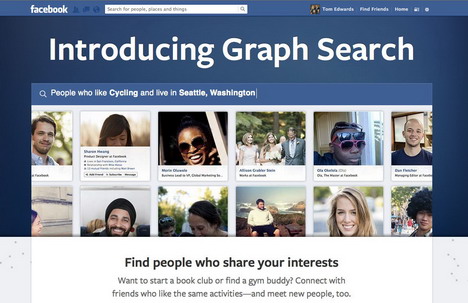What is The Future of Social Search?
Compared to just a couple of decades ago, the way that we’re able to find information has radically changed. Before the internet, discovering what you wanted to know would mean tracking down and asking someone knowledgeable on the subject or finding an educational book or video that provided the answers. For more complicated inquires, this was neither a simple nor quick task.
In 1994, some of the first search engines were coming onto the scene and gaining popularity along the small number of internet users online at the time. Platforms like Lycos, WebCrawler and Yahoo were finally giving people instant access to a wealth of knowledge.
Over the years, search engines like Google and Bing would be developed and continue to revolutionize the way that humans all over the world are connected to information. Despite these advancements, the underlying concept is based on the same principles used twenty years ago in the earliest days of the World Wide Web.
Traditional Search Engines are Becoming Outdated
There’s no questioning that search engines are some of the most used resources on the internet. Every single day, Google alone processes over one billion queries from its users. They’re popular because they currently provide the best way for people to find the information that they’re looking for – but they could slowly be beginning to lose their foothold.
In the most basic sense, traditional search engines work by sending their spiders out to scan every webpage on the internet that they can reach. Their servers store this parsed information in their databases, allowing users to query words or phrases and receive a list of the pages containing their search term.
Where it gets more complicated is that the search engines each have developed their own algorithms for determining which indexed sites are the most relevant and useful for the searcher. This has led to secret, proprietary formulas for sorting out the trillions of webpages currently indexed.
Changes are made to these algorithms daily and the search engines focus their efforts on semantics analysis and artificial intelligence to constantly improve results. Despite their progress, this is where they’re facing the biggest problems – the limited computation power of computers.
Socially-Based Search Engines are Gaining Popularity
Sure, some supercomputers are able to process 33.86 petaflops per second, but they still lack the capabilities and ingenuities of the human brain. This is where social search engines are stepping in.
Social searching sites like Socialsu.com are gaining popularity because they rely more on human submissions and recommendations than artificial algorithms. Users can recommend pages that they have found useful, and future searchers can provide positive or negative feedback that determines how a page ranks in the results.
Rather than constantly updating algorithms and having to probe deeper into the World Wide Web as it continues to expand, social search engines grow in size and effectiveness alongside their user base. The more users submitting informative pages to the social sites, the more comprehensive its database will be. More users also mean more accurate ratings for pages, further honing the ability to return the best results.
These sites are almost infinitely scalable without requiring nearly as much effort to keep relevant as traditional search engines. They’re also powered by the collective reasoning of human brains rather than that of microchip processors.
Social Networking Sites are Integrating Search Features
Social search isn’t just limited to separate search engines. Social platforms like Facebook integrate search features directly into the way they operate. They use algorithms that, compared to SEO-focused search engine formulas, are focused on the influence of the people in your social circle. Based on your interactions with your friends, and the content that they enjoy and find useful, social media sites offer up articles and information that they feel will be of the most interest to you as well.
One of Facebook’s newest advances in social search is with its Graph Search. Graph Search allows users to find the exact answers to their questions rather than returning links to the information they feel will be helpful. You don’t enter keywords into Graph Search, but instead ask questions directly. Each person’s results will be personally customized based on the interactions they have with their friends, as well as various factors of their extended social circle.
To be fair, most traditional search engines are using social metrics to help provide relevant results, but they focus more on things like Facebook likes and shares rather than your personal social sphere of influence. Bing does, however, integrate with Facebook to show pages that have been liked by your friends in their search results.
Businesses Should Adapt to Social Search Early
Search preferences are moving more towards social search instead of algorithm-based search as more advanced platforms are being developed and gaining exposure. Today, companies trying to rank well in search results have to spend time and money on search engine optimization. While traditional search engines aren’t going anywhere anytime soon, site owners need to shift their focus towards being more socially optimized.
This means making your website as socially-shareable as possible. Rather than building backlinks and optimizing keyword usage, your content needs to be informative and created in a manner that captivates your audience and encourages them to share with their friends.
Take measures to stimulate discussion and engagement between users and your site. Rather than only providing detailed resources, instead focus to create a community atmosphere around your brand.
To see what kind of content trends well across social media, many people turn to search engines that cater to social media content.
As consumer preference changes from traditional search engines towards socially-influenced platforms, it’s important that businesses alter their focus as well. Searches based almost entirely on computer calculations just aren’t able to process data in the same way that the human mind can. With social search, the combined brainpower and thought processes of real people can generate results that are more accurate and relevant to what the searcher is looking for. Taking advantage of this shift means ensuring your website’s content is providing the answers that your users are seeking, and that it’s optimized not for the search engines, but for readers to want to share it with their friends.
Author: Kostas Chiotis
Kostas Chiotis is a serial entrepreneur and blogs at OpportunitiesPlanet.com. Kostas writes for Socialsu.com and contributes regularly on popular internet marketing blogs like Quertime.com and believes that content with the right marketing can really make the difference for any business’s success.
You May Also Like:
 40 Best Social Media Search Engines to Find People & Profiles
40 Best Social Media Search Engines to Find People & Profiles
 Coordinating Social Media and SEO Strategies for Effective Blog Promotion
Coordinating Social Media and SEO Strategies for Effective Blog Promotion
 20 Effective Ways to Boost Search Rank with Social Media
20 Effective Ways to Boost Search Rank with Social Media
 Top 20 People Search Engines to Find Anyone You Want
Top 20 People Search Engines to Find Anyone You Want
 How to Search Your Facebook Timeline with Web Tool & Mobile App
How to Search Your Facebook Timeline with Web Tool & Mobile App
 The Future of Security on Social Networks
The Future of Security on Social Networks
 3 Tools to Search and Store Your Facebook, Twitter and Other Social Media Activity
3 Tools to Search and Store Your Facebook, Twitter and Other Social Media Activity
 How to Remove Yourself from Facebook Search Results
How to Remove Yourself from Facebook Search Results
Tags: internet, search algorithm, search engine, social media
Comments are closed.













































